 |
 |
 |
 |
 |
 |
 |
 |
 |
 |
|
KICP Workshops & Events
|
Other Events, 2012 EFI Colloquium: Rainer Weiss, MIT on behalf of the LIGO Scientific Collaboration, "Current State and Prospects for LIGO" March 7, 2012 | 3:30 PM | BSLC 001 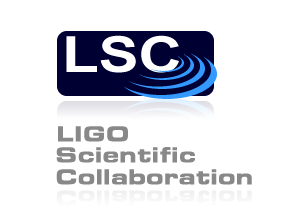
About Time: Cosmology and Culture at the Twilight of the Big Bang March 16, 2012 | 11:30 AM | Northwestern University Chicago Campus Website Times change, literally, for human culture and the Cosmos as a whole. According to astrophysicist Adam Frank, specific human conceptions of time don't last forever and our "modern" version is already in the midst of a radical change. In his new book, About Time, Dr. Frank argues that new ideas in cosmology are pushing the revolution in time to its final stage. Just as a "clockwork universe" followed the invention of the clock 500 years ago, scientists are now moving beyond the Big Bang to talk about universes built from information pushing time into mind-boggling new territory. Imagine: An eternal "multi-verse" made of infinite, parallel universes with infinite versions of you, lots of little bangs but no big bang beginning, a string theory universe in 10 dimensions of ever-repeating cycles, or a universe where time doesn't exist at all. It's impossible to say which of these new ideas will become the foundation for a new time because the science is still in flux. We do know we're living at the twilight of the Big Bang. It's the end of time as we know it now and as we live it now. Read more >> Blowing up a mountain for the GMT March 23, 2012 | 11:00 AM | Chile Website Construction continues on the Giant Magellan Telescope. The next event is the first blasting for the leveling of the top of the mountain to prepare the site for the telescope. On Friday, March 23, at 01:00 PM, Chilean Time, (11 am Central time), the First Blast (Big Bang event), will take place at Las Campanas Observatory. The live streaming is provided thanks to the courtesy and close collaboration of the US Embassy in Chile. Read more >> Related Links: KICP Members: Edward W. Kolb RogerFest: Roger Hildebrand Colloquium May 7, 2012 | 4:00 PM | KPTC 206, KPTC 106 Website Dear Colleagues, Please join us as we honor Roger Hildebrand on the occasion of his 90th birthday with a special EFI Colloquium and reception to be held Monday, May 7, 2012. The event will begin at 4:00 pm with coffee/tea/cookies in room 206 of the Kersten Physics Teaching Center, 5720 South Ellis Avenue, followed by a series of short presentations in the large lecture hall, KPTC 106, about different aspects of Roger's career. We will wrap up with a reception* following the talks. We hope you and your guest will be able to join us in celebrating Roger on this occasion. Read more >> Women in Science Symposium 2012: Big Ideas, Big Impact May 11 - 12, 2012 | School of the Art Institute of Chicago Website Women in Science 2012: Big Ideas Big Impact, builds on the successful 2010 Women in Science: Building an Identity, during which more than 200 women scientists attended an exciting day of plenary talks, panel discussions and breakout sessions. Specifically the Women in Science Symposium 2012 will focus on: * Highlighting innovative, game-changing women in diverse science and engineering fields * Discussing modern approaches to research practice, work-life balance, entrepreneurship and administration * Providing meaningful opportunities for discourse and networking Who should attend? This event will convene women scientists and engineers interested in sharing ideas and learning from leading women in - academia, industry, government, business and the nonprofit sectors - to share ideas and experiences critical for the 21st century. Friday, May 11, 2012 School of the Art Institute of Chicago; 112 S. Michigan Avenue - 1st Floor Ballroom 5:30PM - 7:30PM Reception & Registration 7:00pm - Key Note Speaker - Alice Huang Senior Faculty Associate in Biology at the California Institute of Technology, and Past President of the American Association for the Advancement of Science (AAAS) Saturday, May 12, 2012 Northwestern University - Lurie Medical Center; 303 E Superior St., Chicago, IL 8:30am - 9:30am Registration & Continental Breakfast 9:30am - 4:00pm Full-Day Symposium The Chicago Council on Science and Technology is organizing a Women in Science Symposium, May 11-12, 2012. This symposium will provide opportunities for discourse and networking with women in diverse fields of science on topics such as research practice, work-life balance, and entrepreneurship. Read more >> 2012 Brinson Lecture: David Charbonneau, "The Fast Track to Find an Inhabited Exoplanet" October 2, 2012 | 6:00 PM | Adler Planetarium & Astronomy Museum Website David Charbonneau, 2012 Brinson Lecturer David Charbonneau is a professor of astronomy at Harvard University. He led the first studies of the compositions of exoplanets and of their atmospheres, and he is a member of the NASA Kepler Mission to find Earth-like planets. Dr. Charbonneau has received numerous awards for his research, including the NASA Medal for Exceptional Scientific Achievement, and he was named Scientist of the Year by Discover Magazine. 2012 Brinson Lecture: "The Fast Track to Find an Inhabited Exoplanet" Are there inhabited worlds other than our own? Although humans have pondered this for generations, this is the first time that we have the technological ability to answer it. In the past year astronomers have found the first Earth-sized worlds orbiting other Suns, and the first exoplanets with the right temperature for liquid water. If we can study the atmospheres of such planets, we can search for the telltale molecular fingerprints of life. This event is co-sponsored by the University of Chicago and the Adler Planetarium & Astronomy Museum. Read more >> Related Links: KICP Members: Randall H. Landsberg Flash Center seminar: Manos Chatzopoulos, University of Texas at Austin, "Superluminous Supernovae from Pair Instability and from SN ejecta - Circumstellar Matter Interaction: Insights from Light Curve Fits and Simulations" October 15, 2012 | 2:30 PM | Kent Room 107 Superluminous Supernovae (SLSNe) appear to come in two main spectroscopic flavors: hydrogen-rich (such as SLSN 2006gy, SLSN 2006tf, SLSN 2008am) and hydrogen-poor (such as SLSN 2007bi, SLSN 2008es, SLSN 2010kd). SLSNe are thought to be the result of either violent, massive SN ejecta -- circumstellar interaction or massive stars that encounter electron-positron pair instability in their oxygen cores (Pair Instability Supernova; PISNe). In the present work, we use the observed LCs of 9 SLSNe and other objects in which CSM interaction might be relevant and fit a series of SN LC models for different power input mechanisms (radioactive decays of 56Ni and56Co, magnetar spin-down, CSM interaction) using a new ?2 -- minimization code. The analysis of the fitting results and the implied model parameters suggest that CSM interaction is the most likely mechanism for the majority of hydrogen-rich SLSNe. We suggest that hydrogen-poor CSM interaction can also be relevant in hydrogen deficient SLSNe, such as SLSN 2006oz and even SLSN 2007bi as an alternative to the PISN scenario. In addition, we present models of hydrogen-poor CSM shells ejected by Pulsational PISNe corresponding to rapidly rotating progenitors with smaller masses than in the non-rotating case. Cafe Scientifique: Elbert Huang, "Healthcare Reform: The Intersection of Science and Money" October 29, 2012 | 7:00 PM | Map Room - 1949 North Hoyne Ave Chicago, IL  Related Links: KICP Members: Randall H. Landsberg Physics with a Bang December 8, 2012 | 11:00 AM | Kersten Physics Teaching Center, 5720 S. Ellis Ave., Chicago Website Students, families, teachers and especially the curious are invited to attend our annual Holiday Lecture and Open House. See fast, loud, surprising and beautiful physics demos performed by Profs. Heinrich Jaeger and Sidney Nagel. Talk to scientists about their latest discoveries. Participate in hands-on activities related to their research. Lecture repeated at 11am and 2pm Open House and Demo Alley from 12pm-4pm Read more >> |


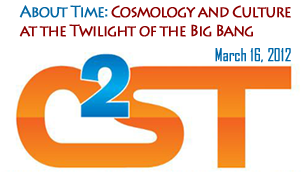
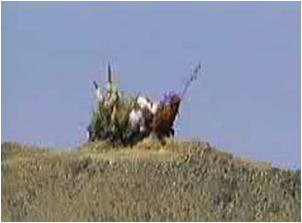
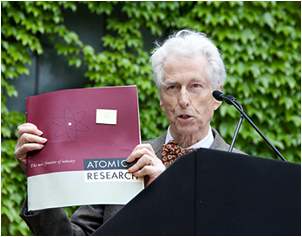
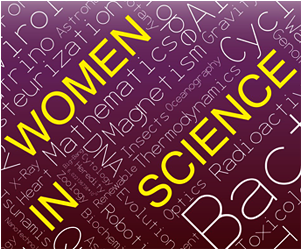
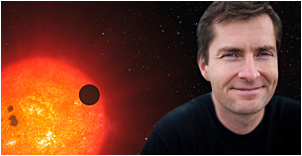
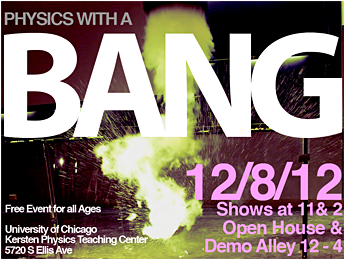



 Overview
Overview